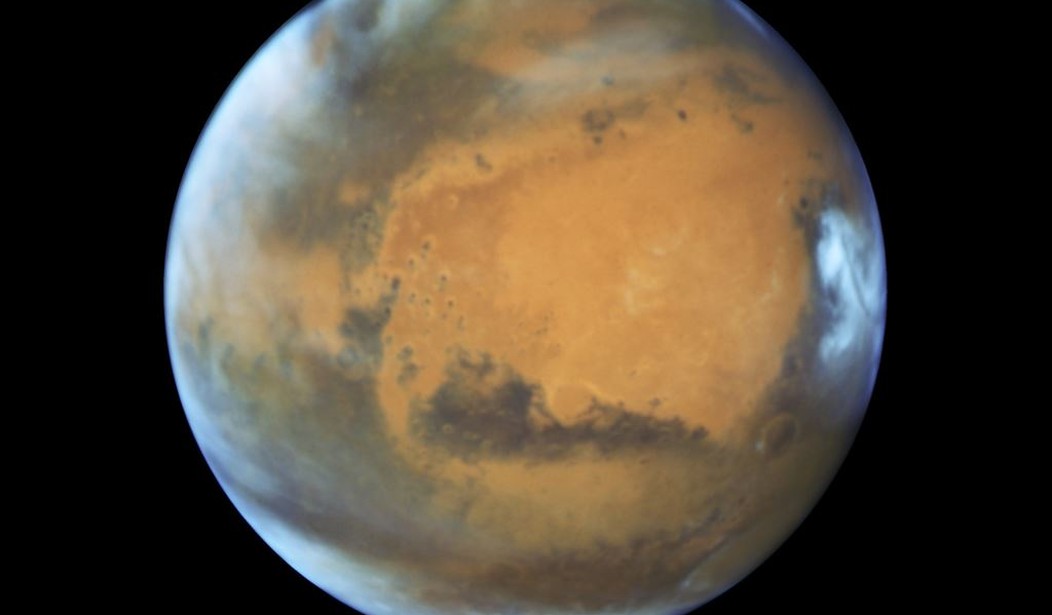Ever since Percival Lowell believed that he may have charted canals on Mars, and even before, people have been fascinated by the idea of life on the Red Planet. From H.G. Wells and Edgar Rice Burroughs to Ray Bradbury and countless books and movies since, we are intrigued with the history, real and imagined, of one of our closest neighbors and the one planet in our solar system that despite its extreme temperatures, lack of atmosphere, and desolation is the most like our own. And there may, and I mean may, be reasons for those who have been hoping for signs of life outside of earth to rejoice, although not all of the data is in.
Just the News notes that NASA has announced that the Mars Rover has found evidence of organic compounds that may indicate that life in its most basic form may have been present in the planet’s distant past. Eva Scheller, an astronomer for MIT, explained to Vice that the compounds were actually the “building blocks” for life and that the crucial ingredient of water with the compounds would be needed to create a habitable environment. So, NASA has discovered a few signs of the potential of life.
Should further evidence prove that even a rudimentary form of life once came just close to flourishing on Mars, the news will be historic. And atheists the world over will gleefully declare that the evidence disproves the existence of God since it would confirm that life is not exclusive to Earth. Creationists the world over would have their hands full trying to defend their worldview in the face of The Science. But a person sufficiently mature in his or her faith would not be fazed by the announcement, since there is nothing to preclude the idea that the Almighty created life on other planets, or that another world may have played a role in God’s plan to bring life to this one.
Related: To Ignore Strange New Worlds: Astrobiologists Fret About ‘Colonizing’ the Universe
But those same people who would be citing a discovery of life, even rudimentary life, as a reason for canceling God would also be among the first to claim that a “clump of cells” in a womb is not life. They would contend that a baby, who in their estimation is not capable of advanced reasoning, is eligible for termination, in some cases, even after birth. And so the definition of life becomes dependent on convenience. A simple organism can be life or not, if it means defeating a long-held belief or rewriting societal mores. And the malleability of the definition of life should be of concern, no matter what the Mars Rover turns up.










Join the conversation as a VIP Member